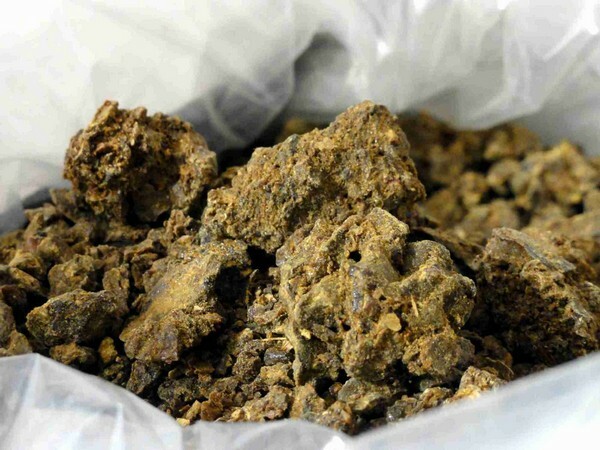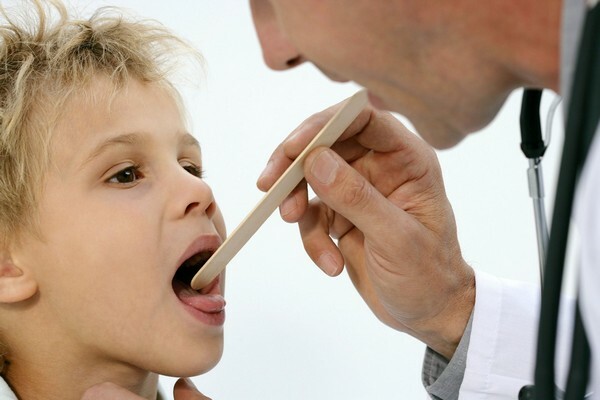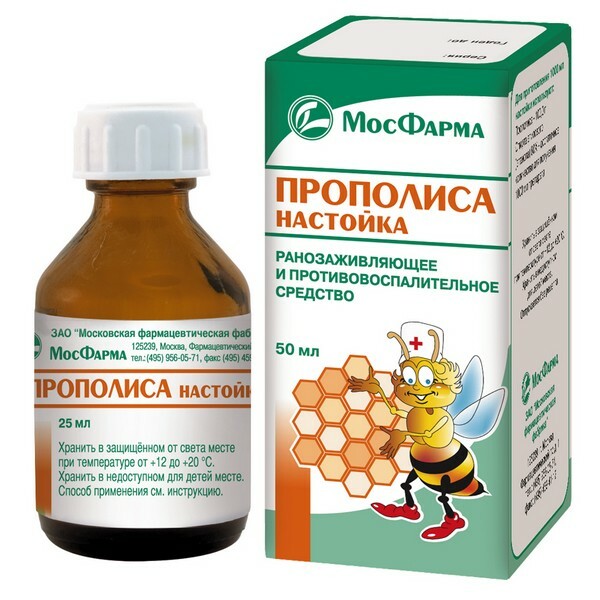- Features of treatment
- Useful properties of bee glue
- Basic rules for use
- Contraindications
Angina, or acute tonsillitis, is the respiratory pathology that most often occurs during off-season periods. The disease is characterized by severe sore throat, severe temperature jumps, weakness and apathy. Angina therapy is performed under strict medical supervision because of the high probability of serious complications - meningitis, pneumonia, abscesses. Otolaryngologists practice a complex approach to treatment, aimed at eliminating the cause of pathology and reducing the severity of clinical manifestations. Propolis with angina successfully copes with both infectious pathogens, and with extensive symptomatology of tonsillitis.

are used. Features of treatment
Before the beginning of treatment of a sore throat a number of laboratory researches are carried out to establish the species belonging of causative agents of the disease. The matter is that yeast fungi, pneumococci, staphylococci, streptococci can provoke a respiratory pathology. Especially severe in adults and children is acute tonsillitis caused by the activated herpes viruses. For each type of angina, a special etiotropic treatment is required to kill pathogenic microorganisms.
Warning: All dosage forms of propolis are used in therapy of angina only as an additional remedy. With an average and high severity of infection, antibiotic therapy, antiviral or antimycotic drugs, is required.
The unique chemical composition of propolis( bee glue) includes biologically active substances that have a multifaceted therapeutic effect:
- bactericidal and bacteriostatic;
- is an antifungal;
- antiviral.
This means that propolis will help to successfully cope with angina regardless of its etiology. Immunomodulating activity of bee glue is of no small importance. Acute tonsillitis is always diagnosed in an adult and a child with a decrease in the body's resistance to infectious agents. Regular use of propolis restores the functional activity of the immune system. Strengthening the protective forces is an excellent prevention of recurrences of a chronic disease.
Angina is almost always accompanied by a rise in temperature above subfebrile values. Attacks of nausea and vomiting, diarrhea, or constipation develop in children and adolescents against hyperthermia. A mixture of milk with propolis quickly eliminates diarrheal disorders, while significantly accelerating recovery.

Useful properties of bee glue
Propolis contains phytoncides, flavonoids, fatty acids, mineral compounds and vitamins that are quickly absorbed by the mucous membrane of the larynx. They penetrate even into deeply located soft tissues, stopping the inflammatory process taking place in them. This ability of bee glue allows using it in the therapy of all types of sore throat:
- follicular;
- catarrhal;
- lacunar.
In the treatment of acute tonsillitis not only its antibacterial, antifungal and antiviral properties are used. Due to the high concentration of natural waxes, propolis has a positive effect on the inflamed mucous membranes of the upper respiratory tract:
- softens the irritated throat;
- eliminates persecution;
- restores microcirculation;
- strengthens immunity at the local level;
- promotes the regeneration of damaged tissues.
When the throat is rinsed with a diluted propolis tincture, the pharyngeal tonsils are sanitized. Pathogenic microorganisms are leached out of the lymphoid formations, as well as end products and intermediate products of the inflammatory process. At the initial stage of respiratory pathology, frequent rinses( 5-6 times a day) make it possible to avoid taking antibacterial drugs and sulfonamides characterized by numerous side effects.
Recommendation: Specialists of folk and official medicine advise gargling of the throat for propolis to people who care for patients with sore throat. Acute tonsillitis is easily transmitted by airborne droplets, and the use of bee glue will help avoid infection to family members or medical personnel.

Basic rules for the use of
The use of propolis in the treatment of angina should be notified to the otolaryngologist. Biologically active substances included in the beekeeping product enhance the effect of many drugs, including antibacterial drugs. This can cause unwanted overdose and side effects. The doctor will adjust the amount of funds taken or advise using propolis after the main treatment.
Warm milk with propolis and honey
A medicinal mixture with acute tonsillitis should be taken once a day before going to bed. A glass of healthy beverage contains all the substances necessary for a quick recovery. Prepare the medicine at home is very simple:
- Boil 200 ml of low-fat milk and put propolis at the tip of the knife.
- While stirring constantly, warm up a few more minutes.
- Remove from the plate and add a teaspoon of thick honey to the mixture.
The use of this drink will help to get rid of perspiration and sore throat, to prevent the spread of infectious agents into the lower respiratory tract.
Healing rinses
Frequent rinses of propolis tincture with angina contribute to the removal of pathogenic microorganisms from inflammatory foci and alleviation of symptoms. In the treatment of acute tonsillitis in children, alcoholic tinctures are not used, therefore for children it is necessary to prepare water dilution according to this recipe:
- In 0.5 l of boiling water add 2 tbsp.spoons without a hump of crushed propolis.
- Stirring, cook over low heat for 10-15 minutes until the bee glue is completely dissolved.
- Cool, filter and rinse.
Adults in the absence of contraindications can use the pharmacy alcohol tincture. To prepare a rinse aid will help such recipes of traditional medicine:
- add a bottle of isotonic sodium chloride solution 2 tbsp. Spoons of 20% tincture and shake thoroughly;
- mix a tablespoon of phyto-medicine with a glass of boiled water;
- dissolve 2 teaspoons of spirituous tincture in a glass of warm sage infusion, chamomile or marigold;
- dilute a tablespoon of a drug in a glass of slightly saline mineral water( Slavyanovskaya, Borzhomi, Essentuki No. 2 and No. 4, Nagutskaya, Narzan).
To achieve the maximum therapeutic activity when rinsing the palatine and pharyngeal tonsils, solutions should be prepared immediately before use. The treatment procedure should last at least five minutes.

Contraindications
Treatment with propolis is not carried out during pregnancy and during lactation. Despite the natural composition of bee glue, it is capable of provoking a serious allergic reaction in the baby due to active ingredients penetrating all biological barriers. For the same reason, propolis is not suitable for the therapy of adults and children who are individually sensitive to any bee products. Absolute contraindications to this therapeutic technique include the following pathologies:
- urolithiasis;
- acute renal failure.
The use of tincture also has a number of limitations because of the ethyl alcohol contained in it. Of course, when dissolved in water or milk, its concentration is greatly reduced, but the organic compound, even when rinsing the throat, can penetrate into the bloodstream. This should be taken into account for people who have acute or chronic liver and urinary system diseases. Treatment with any alcohol tincture will provoke pain in the epigastric region in patients with erosive and atrophic gastritis.
Warning: During the treatment of angina, alcoholic tincture of propolis should be discarded from driving the car. It is better not to use the drug for people whose work requires constant concentration and attention.
